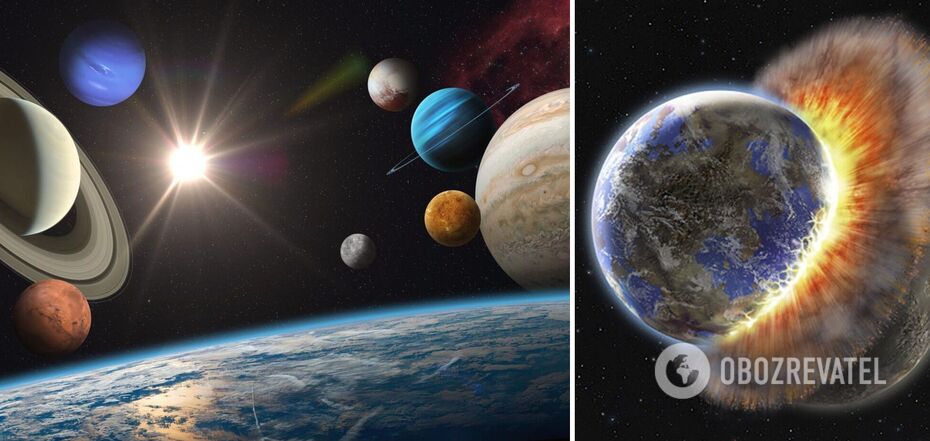Life
Earth will be ejected from the solar system: astrophysicist shows the consequences of planetary scientists' dream
There is an opinion among scientists studying space and the universe that our solar system is not "built" in the best way, as there is a significant amount of space between the planets that is wasted. It is not surprising that many of them dream of having another intermediate planet between Mars and Jupiter, or even more than one.
But the reality is that a dream for some can turn into a nightmare for others. The fact is that the solar system is in such a perfect balance that any attempt to interfere with it can turn into chaos.
To prove this at the scientific level, astrophysicist Stephen Kane from the University of California, Riverside (USA) conducted a thorough study, the results of which were published in The Planetary Science Journal.
Kane was able to establish that even the appearance of one small planet would cause the entire solar system to go crazy.
For the experiment, he took into account the appearance of a planet whose mass is in the range of masses between the Earth and Neptune, which is 17 times larger than our home planet.
Despite the fact that planets of this size are widespread in other parts of the galaxy, there is neither a super-Earth nor a mini-Neptune in the Solar System. At the same time, there is a huge "gap" between the orbits of Mars and Jupiter, which is filled with an asteroid belt, although it could easily accommodate a planet.
For example, the average distance from Earth to Mars is 225 million kilometres, while in 2003 the two planets approached to "only" 54.6 million kilometres (this will not happen until 2237, according to NASA). The distance between the red planet and Jupiter is now 550 million kilometres.
"Planetary scientists often dream that there is something in between these two planets," Kane explained, noting that many scientists consider such free space to be wasted.
The astrophysicist decided to make the planetary scientists' dream come true and created a simulation in which he placed the planet between Mars and Jupiter. And then the chaos began.
"This fictional planet gave Jupiter a boost that was just enough to destabilise everything else," Kane said of the results, joking that humanity was lucky that such a planet didn't actually exist.
The level of chaos in the solar system depended entirely on the mass of the new planet and its distance from the Sun. The average orbit of Mars is located at a distance of 1.5 AU from the Sun; Jupiter's is at a distance of 5.2 AU.
Kane explained that the only point at which the new planet had a chance for peaceful existence with other planets under certain additional conditions was at a distance of 3 AU from the Sun. But a small step to the left or right and the harmony was over.
According to Kane's calculations, a planet at a distance of 3.1 to 4 AU would disrupt Mercury's orbit, and at a distance of 2.0 to 2.7 AU would shake Mars.
Jupiter and Saturn would not be affected by such a planet, but the angular momentum transmitted to Uranus and Neptune would destabilise the ice giants.
In the worst-case scenario, the simulation showed that Venus, Mercury, Earth, Mars, Uranus and Neptune could eventually be ejected from the solar system.
In the best case scenario, the Earth's orbit would deviate sharply from its current course, making our planet less habitable or even uninhabitable.
Scientists already know that Jupiter is a kind of protector of the Earth, as it protects our planet from asteroid bombardment, but, according to Kane, the simulation may indicate that Jupiter also acts as a "stabiliser" of the Solar System, preventing the formation of a planet in the space occupied by the asteroid belt with its gravitational influence.
"Our solar system is more finely tuned than I had previously thought. It all works like a complex clockwork. Add more cogs and it all breaks down," Kane summed up his research.
Earlier OBOZREVATEL wrote about the prediction of scientists who calculated what will happen to humanity in the case of an asteroid collision with the Earth.
Subscribe to OBOZREVATEL's Telegram and Viber channels to keep up with the latest news.



























